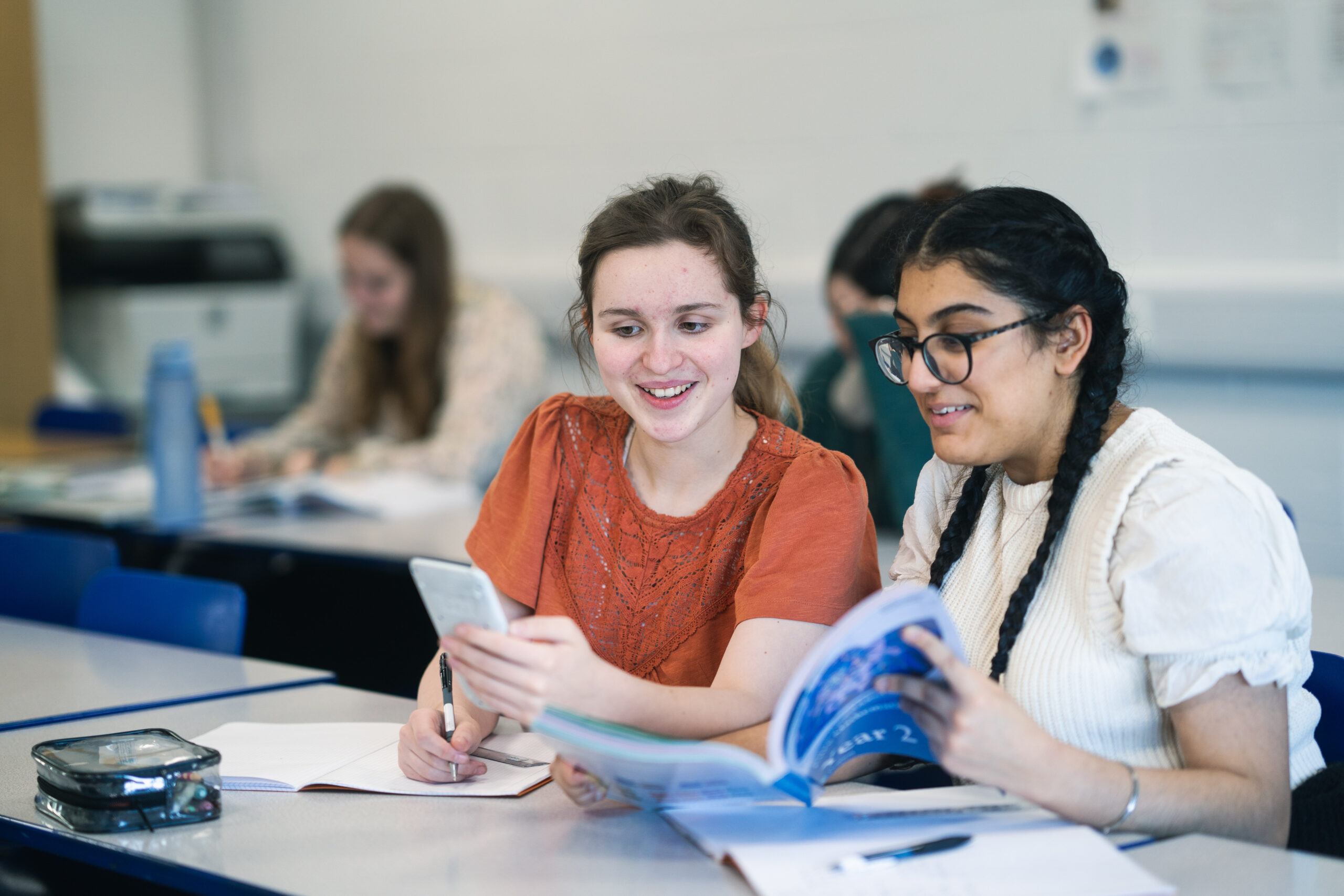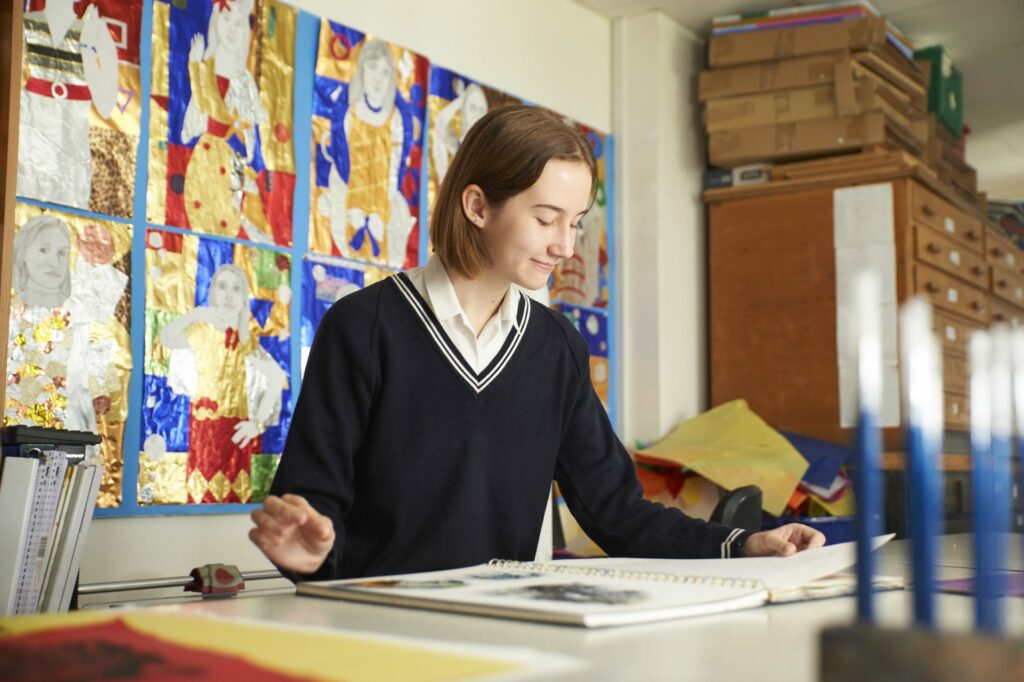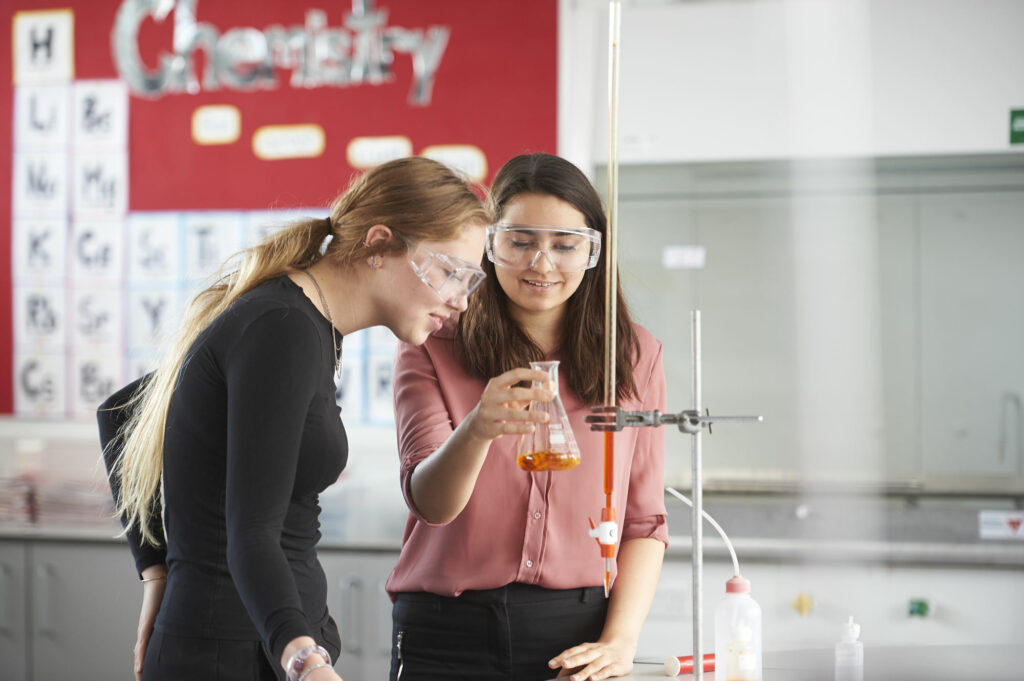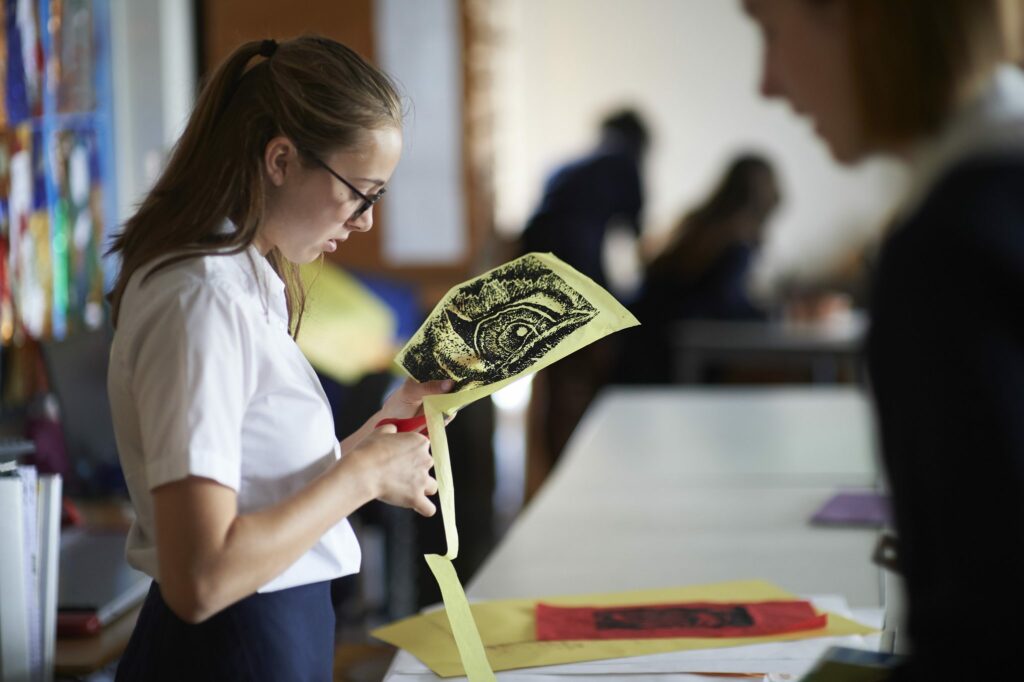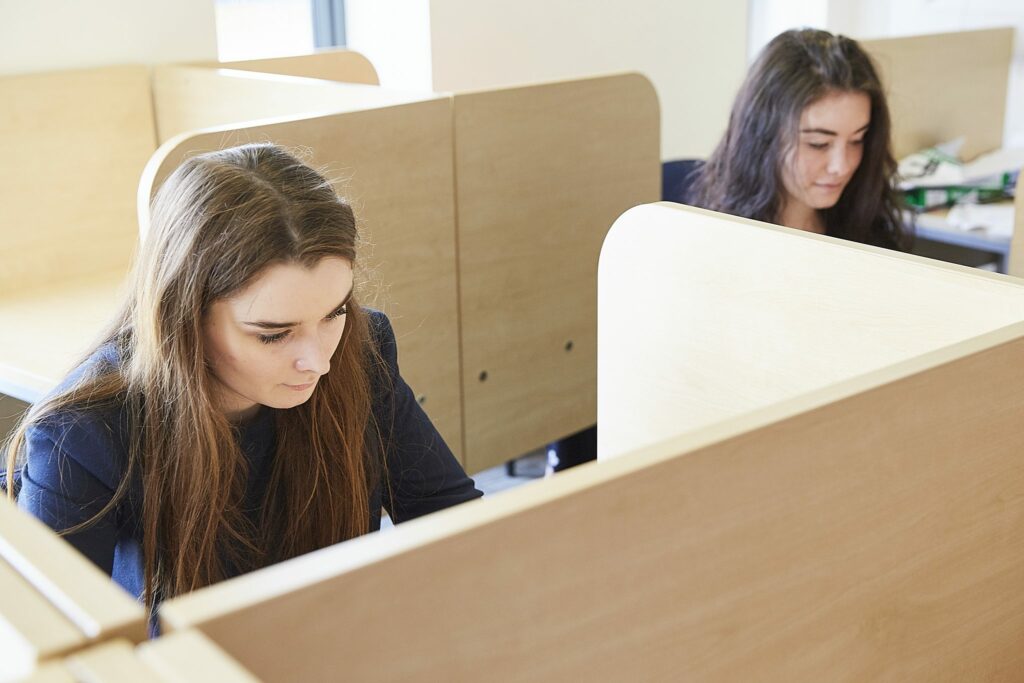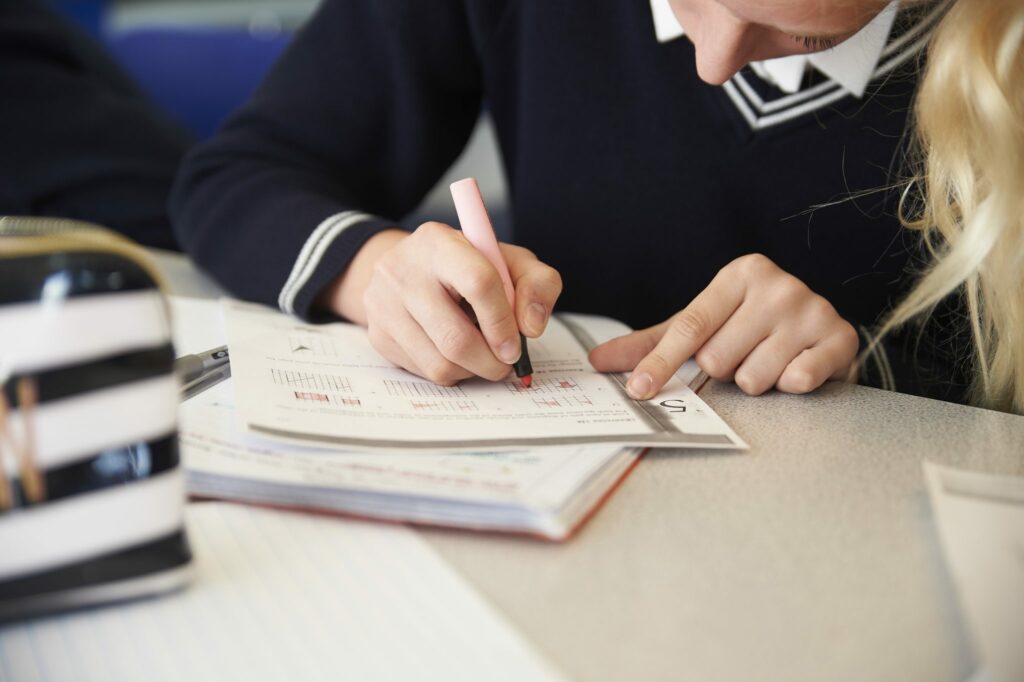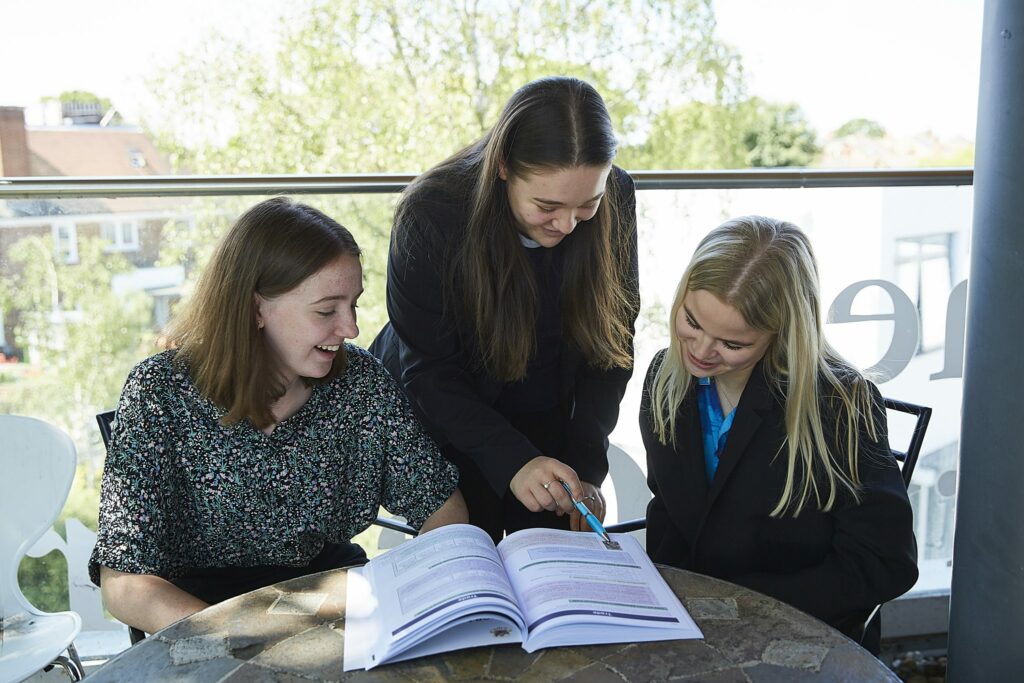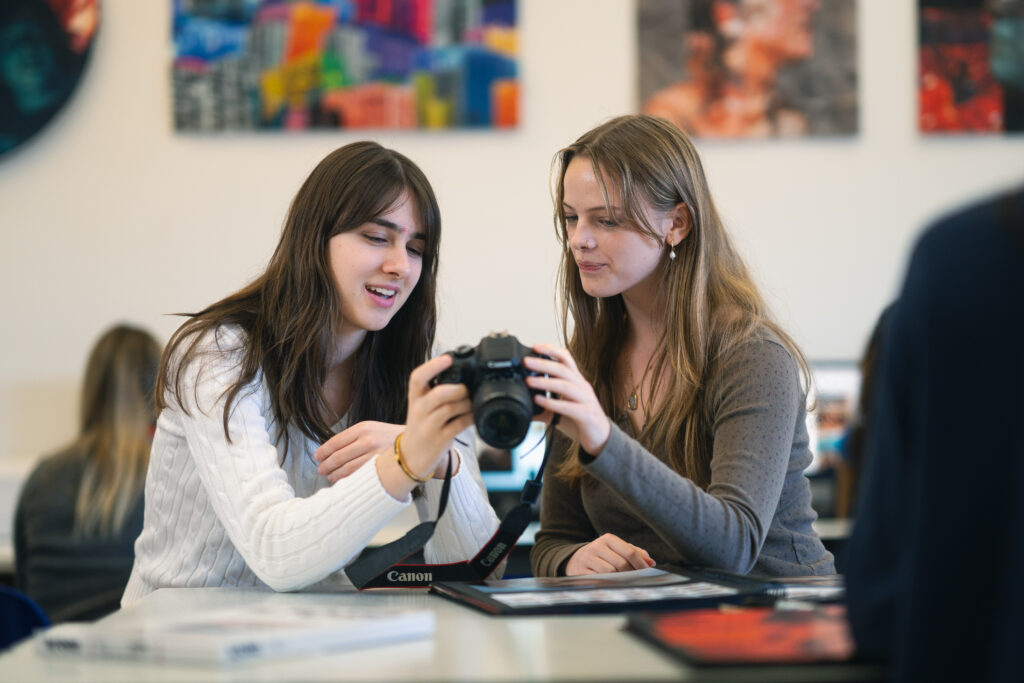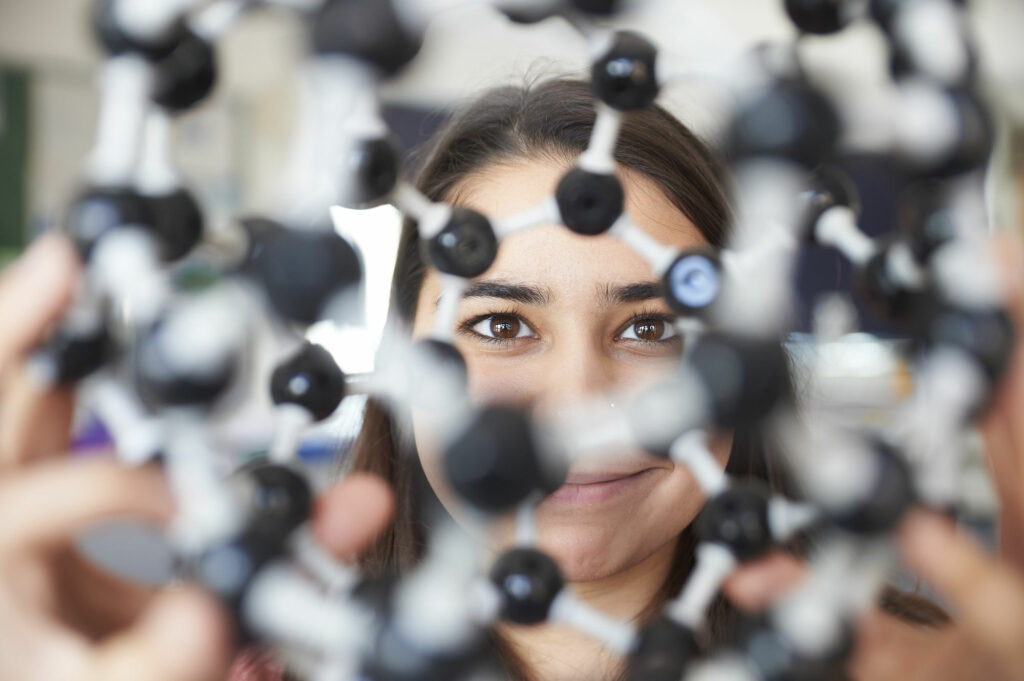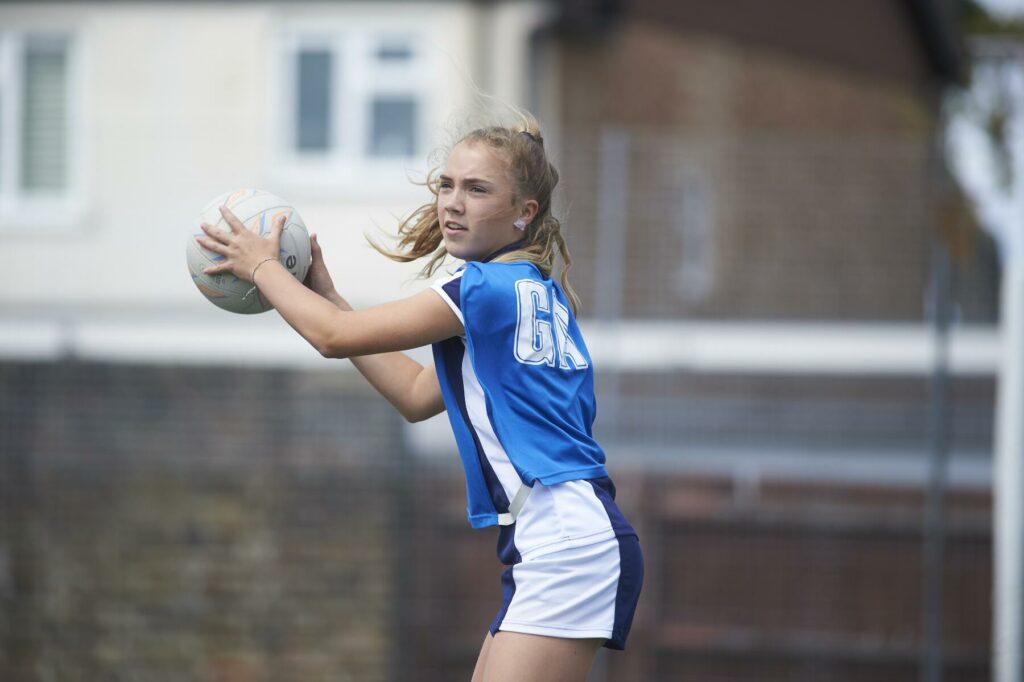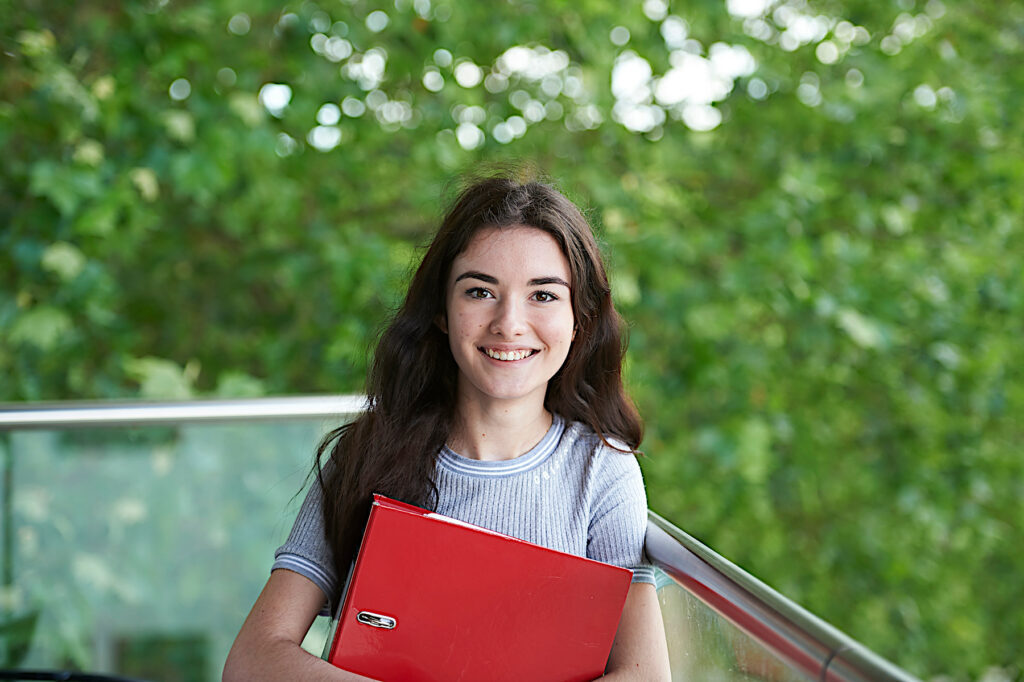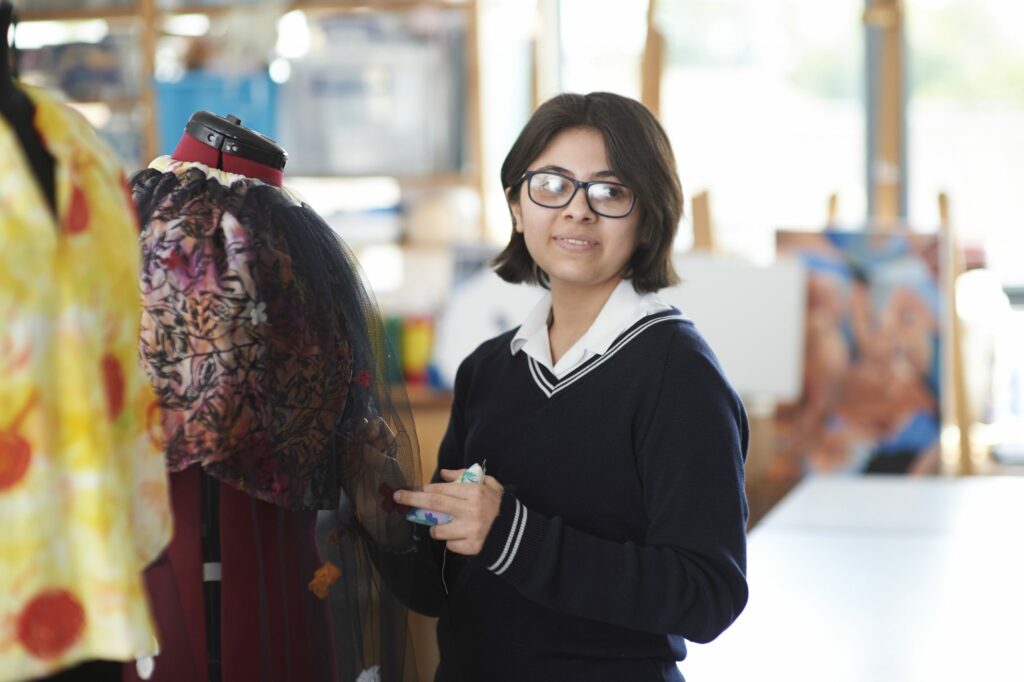At St Catherine’s, academic standards are high. Our value added figures are also exceedingly strong, demonstrating that our dedicated staff really do get the best out of every girl.
With our small classes and outstanding teaching staff, excellent preparation for A Level is a given. We offer individual attention and know the needs and abilities of each student in our care, providing support or extension as appropriate. Teachers frequently offer revision sessions outside the timetabled school day, and have an open-door policy.
Our Sixth Form curriculum includes a full range of A Level courses, encompassing the traditional subjects such as English, History, Geography, Languages, Maths and Science, as well as Economics, Politics and Psychology. We also have a wide range of creative subjects and vibrant Drama, Music and Art departments who support these interests. We endeavour to accommodate student subject choices within our timetable, ensuring that every girl can study the subjects which suit her own strengths and aspirations.
Each girl usually studies four A Level subjects during Year 12, and continues with three of these subjects in Year 13. Following this model ensures the girls to receive a broad education, and that they make informed choices when selecting their final three subjects. In addition to their subject lessons, they also receive one General RE and one General PE lesson per week. In Year 12 they also have a Study Skills lesson. All the Sixth Form receive 2 lessons of ‘General Studies’ a week. This is an in-house programme which consists of a wide variety of relevant courses on such things as: study skills, interview techniques, university applications and careers advice as well as more practical sessions on ‘survival cookery’, presentation skills, orienteering and first aid. We also invite Elevate Education to St Catherine’s every term to run a series of seminars on study skills with our students.
In addition to A Levels, we also offer all girls the chance to study for the Extended Project Qualification (EPQ). Much valued by universities, the EPQ is worth 50% of an A level, and universities often make lower offers to students with an EPQ. The qualification provides an excellent opportunity for the girls to demonstrate their independent research skills, and to delve deeply into their passion.
All students wishing to study in the Sixth Form at St Catherine’s are expected to have achieved six GCSEs at grades 6-9, including a grade 4 in Maths and English. They generally gain a grade 7 in the subjects they wish to study at A Level; however, if a student is close to this level and shows aptitude and willingness in other ways, entry can be discussed with the Headmistress.




